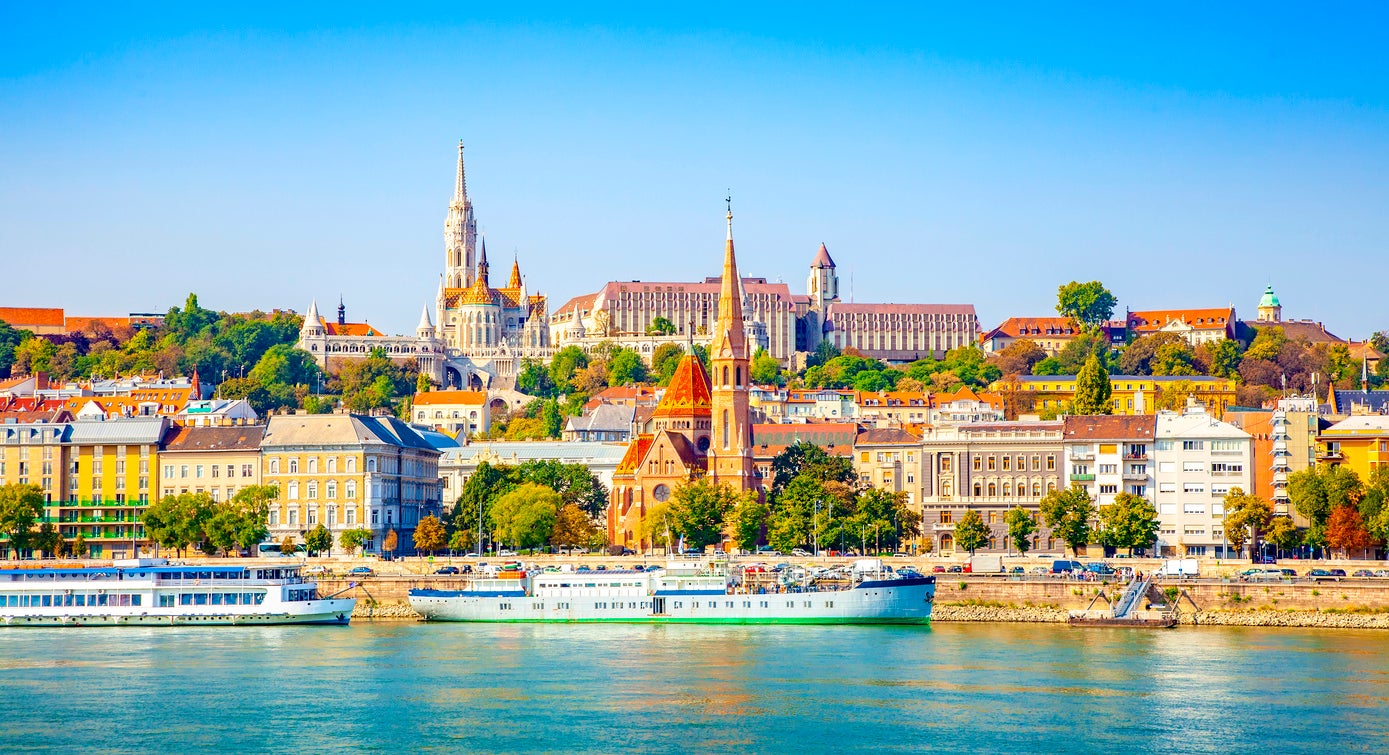What mustn’t I miss during a week spent in the Azores?
Simon Calder on the rules for schoolchildren travelling between the EU and the UK, why the Azores is a terrific winter holiday choice, and what to enjoy (and beware of) on your visit to Budapest


Q I want to go to the Azores for a week in March. Where do you advise me to visit?
Penny S
A The Azores comprise one of the most beautiful, friendly and affordable archipelagos in the world. These nine Portuguese islands are scattered across the Atlantic about 1,500km west of the mainland. From several visits over the past 15 years I strongly recommend the main island, Sao Miguel. It is easy to reach: the capital, Ponta Delgada, has multiple daily flights from Lisbon, plus a few from Porto. Direct UK flights are not operating in March, but you might want to turn that to your advantage by building in a city break in either mainland city.
Ponta Delgada itself is a lovely city, with handsome buildings of basalt and marble. As you wander through the cobbled lanes, you can sense how, in the 15th century, it became a prototype for the New World. Hospitality remains distinctly Portuguese, which means you can expect a warm welcome and sensible prices. One of my favourite restaurants anywhere in the world is A Tasca in Sao Miguel – with furniture from ancient timber, tiles from a distant epoch and walls enlivened with modern art. Book ahead.
Base yourself in Sao Miguel for most or all of your stay: buses and taxis can take you to the top attractions strewn across this intensely three-dimensional island. For me, the star turns begin with Sete Cidades, west of Ponta Delgada. Six craters are contained within a conical mother ship – a total of seven “cities”. Two of the smaller craters are filled to the brim with water – one deep blue, the other emerald green. Sao Miguel offers plenty more seismic experiences. The earth’s forces have been harnessed at a sequence of pools and streams at Caldeira Velha in the middle of the island, a natural spa. You can also visit a volcanic observatory. The Atlantic itself is a key draw, with the chance to swim with whales.
To add a second island, the obvious choice is petite and pretty Santa Maria, south of Sao Miguel. The flight from Ponta Delgada takes just 12 minutes. I call Santa Maria “Concorde Island” because the supersonic jet used to refuel here en route between Paris and Caracas. The airport still has a Concorde lounge. The whole island – with a spectacular coastline and villages lost in time – is compact enough to see it all in a day trip.

Q You reported that French schools will soon be able to visit the UK using only ID cards, not passports. You wrote that one of the flagship Brexit policies on immigration – insisting that Europeans travelling to the UK have passports – has begun to be quietly reversed. But haven’t British kids on school trips always needed a passport to go to the EU because we weren’t in the Schengen area? What’s the problem with EU kids getting a passport to conform to the country they’re visiting?
Amara
A The reason “British kids on school trips always needed a passport to go to the EU” was nothing to do with the UK being outside the Schengen area. It was simply because the UK does not issue national identity cards. A quick reminder that the Schengen area comprises most of the European Union, plus Iceland, Liechtenstein, Norway and Switzerland.
EU citizens can travel freely within it “carrying either a valid passport or a national identity card”, regardless of whether their particular European Union nation is inside or outside the Schengen area. Nationals of Bulgaria, Cyprus and Romania can happily use their ID cards anywhere in the EU (Ireland, the other Union nation outside Schengen, does not have national identity cards).
The problem with EU kids getting a passport to conform to British rules is that they will travel elsewhere, to the detriment of the UK. Insisting every European Union tourist has a passport “has had a catastrophic impact on the international student travel industry”, according to Joss Croft, chief executive of UK Inbound. He told me: “EU school groups are opting to travel to alternative English-speaking destinations such as Ireland, where they can still use their ID cards for entry, instead of the UK, at a cost of millions of pounds to regional economies across the UK who would normally host these students.”
Inbound tourism is the closest thing that any nation can get to free money. Overseas visitors boost local amenities and create jobs. Making it easier for school groups to come to Britain will also improve international understanding. Which, these troubled days, is a commodity of which we need more. So I welcome the U-turn and look forward to the gradual reversal of the whole foolish policy.

Q My young adult children tell me Budapest is the most happening place in Europe right now. I’m happy to try the city out in the new year, but I vaguely remember reading some dire warnings about crime in the city. How apprehensive should I be?
Richard M
A I have travelled widely in Hungary without encountering any problems. But the capital, along with big cities everywhere in Europe, has some specific risks. “Bag snatching and pickpocketing are common,” says the Foreign Office, with particular care required “on busy public transport, in train stations, at markets [and] in places with high numbers of tourists”. In other words, the usual suspects for high-crime areas. Note that you should carry your passport at all times because the police can demand photo ID. A photocopy is not sufficient.
One scam that seems a specialism in Budapest is intimidation in nightclubs (as well as some restaurants and bars) to persuade visitors to pay ridiculous amounts for food and drink. A standard ploy is for the tourist to be befriended by an attractive customer, who then orders some outlandishly expensive drinks. The visitor may be escorted by some large gentlemen to the nearest ATM to withdraw the hundreds of pounds necessary to settle the bill.
The Foreign Office says: “Always ask to see the menu and price list before ordering drinks or food, and check your bill carefully before paying.” It adds that you should never entrust your choice of bar or club to a taxi driver (another rule worth following anywhere in the world). Ask your hotel concierge – or fellow travellers – instead.
Finally, I should warn you about what appears to be a semi-legal scam: targeting tourists who inadvertently breach the rules on public transport ticketing. It is not enough to have a ticket for the underground, buses and trams. You must also validate it at the underground station or immediately on boarding the vehicle. Teams of security staff roam the system ready to pounce on any visitor who does not comply, levying on-the-spot fines of around £50.
Email your question to s@hols.tv or tweet @simoncalder






Join our commenting forum
Join thought-provoking conversations, follow other Independent readers and see their replies
0Comments